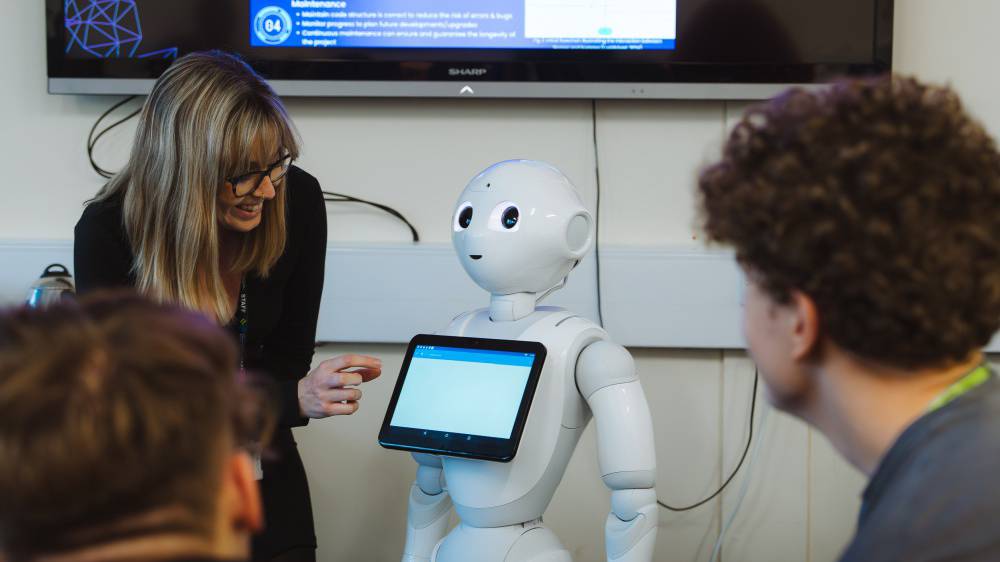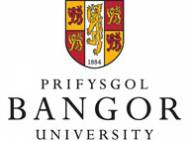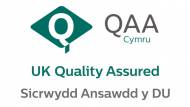Foundation Degree (FdSc) Computing (Software Development)
Key Details
- Available at:Rhos-on-Sea
- Study Mode:Part-time, Full-time
- Course Length:
Full-time: 2 years. Part-time: 4 years.
Thursday, 9am-5pm
- UCAS Codes:G400
Foundation Degree (FdSc) Computing (Software Development)University-level Courses
Part Time
If you are applying to study part-time you can apply directly to the campus of your choice.
Full Time
There are two ways to apply to study for a full-time higher education course - either through UCAS or directly to the college.
Applying through UCAS:
You should apply through UCAS if you are currently studying for A Levels, a vocational Level 3 course (i.e. BTEC) or an Access to Higher Education qualification, or if you wish to apply to more than one higher education provider.
Applying to College:
If you only want to study at the college, or if you already have the qualifications/experience to meet the requirements for your course, you should apply directly to the campus of your choice.
Please contact us for further information about applying for this course.
Course Description
This programme is undergoing re-validation.
The FdSc Computing programme offers an exciting and practical route into the world of technology. Designed for students eager to develop in-demand computing skills, this hands-on course blends theory with real-world application, preparing you for a successful career in the digital industries.
You’ll gain strong foundations in key areas such as programming, databases, networking, web design, and graphics, while focusing on software development using industry-standard languages including C#, CSS3, Java, JavaScript, HTML5, PHP, Python, and SQL. Alongside technical expertise, the course helps you build valuable communication, teamwork, problem-solving, and project management skills — all essential for professional success.
The FdSc is ideal whether you’re starting your journey in computing or already working in the sector and looking to advance. It also provides a direct pathway to the BSc (Hons) Computing – Software Development degree, enabling you to top up to a full honours qualification at Level 6.
Modules include:
Year 1 (Level 4)
- Computer Systems
- Creating and Managing Accessible Websites
- Data Modelling
- Database Design and Management
- Designing Accessible Websites
- Employment in the Computing Industry
- Introduction to Programming
- Operating System Fundamentals
Year 2: Level 5
- Computing Industry Research Project
- Cybersecurity and Future Technologies
- Developing Mobile Technology
- Employability Project
- Introduction to Middleware
- Object Oriented Programming
- Project Management for Computing Professionals
Additional information
More detailed information on Modules is to be found in the ‘Additional Campus/Course Information’ section.
Entry Criteria
Academic requirements:
- a minimum of 72 UCAS tariff points in a main level 3 qualification, usually gaining a pass in at least one relevant subject which could include: A Levels, BTEC, International Baccalaureate, ACCESS to HE; or NVQ Level 3; many additional qualifications from Wales, England and Scotland are accepted to support the UCAS points in addition to the relevant subject, such as the Welsh Baccalaureate.
- GCSE Mathematics/Numeracy, grade C/4 or above, or Key/Essential Skill equivalent level. For applicants without these qualifications, evidence of numeracy skills at a suitable level to meet the demands of the programme successfully, will need to be demonstrated.
- Equivalent international qualifications are acceptable
For individuals who do not meet the above academic requirements we will consider a wide range of non-standard or professional qualifications and experience, through the submission of a portfolio for accreditation of prior learning (APL/APEL/RPEL), in accordance with GLLM regulations and policies.
Entry onto Level 5 will be considered individually in line with Grŵp Llandrillo Menai’s admissions policies.
All places may be subject to a satisfactory interview.
Language requirements:
- GCSE in Welsh or English as first language, grade C/4 or above
- Any degrees, diplomas or certificates eligible should have been taught and assessed in Welsh or English, or
- For overseas applicants, for entry onto Level 4, English fluency to IELTS 5.5 or higher (with no element less than 5.0)
- For overseas applicants, for entry onto Levels 5 or above, English fluency to IELTS 6.0 or higher (with no element less than 5.5)
If your qualifications do not meet the entry requirements listed above, we would still encourage you to apply for the course you're interested in, as many of our courses will consider learners based on their previous work and skills experience rather than their qualifications.
Delivery
You will learn through a blend of the following:
- Interactive lectures
- Practical workshops
- Group discussions / activities
- Guest speakers
- Virtual learning environment (MOODLE)
Learning is participative, informal and full of opportunities for individual exploration and creativity. Industrial placement may also form part of the course.
Students are responsible for organising their own work experience if it is a requirement on their programme, and they will be supported by the course team.
Timetable
- Full-time: 2 years, 2 days per week (typically 9am – 5pm)
- Part-time: 4 years, 1 day per week (typically 9am – 5pm)
Fees
Visit our course fees page for information on full and part-time degree course fees.
Financial Support
Visit our financial support page for information on the range of support available.
More detailed information on other costs associated with your course and work placements/work experience (if applicable) will be outlined in the programme validation document and explained to you at your interview.
Start date
September
Contact:
For specific course enquiries, please contact:
Mark Roberts (Programme Leader): robert19m@gllm.ac.uk
David Clarke (Administration): clarke1d@gllm.ac.uk
For general enquiries about our degrees, please contact: degrees@gllm.ac.uk
Assessment
The course is assessed through a blend of the following:
- Software programmes
- Reports
- Portfolios
- Case Studies
- Presentations
- Lab Work
- Reflection
- Time constrained assessment
Feedback
Where relevant, assessments will be marked and returned to students with constructive and developmental feedback. Effective feedback combines information which enables students to understand the strengths and limitations of their past performance, and information which enables them to recognise how future performance can be improved. Students will be provided with feedback in a timely manner and this feedback will justify how the grade has been awarded. Students will have the opportunity to reflect on the feedback given and identify their strengths, things they found challenging and areas for development that they will feed forward to their next assessment. Feedback will include linking evidence to assessment criteria to demonstrate how the student will have met the learning outcomes.
Progression
Our Computing graduates have progressed onto employment in a wide range of organisations. Others have started their own businesses particularly in the areas of application development and web development.
There is also the option of continuing your studies up to BSc Honours. This can be done full-time or part-time to combine work and study.
Campus Information Rhos-on-Sea
This course combines general computing skills with specialist modules focussing on programming / software development.
For every 10 credits, students should engage with around 100 notional hours of learning. This will be approximately 30% direct learning contact 70% independent student learning.
This combination of modules leads to the Foundation Degree (FdSc) Computing (Software Development).
A separate Foundation Degree specialising in Networking is also available.
Year 1 (Level 4)
Computer Systems (10 credits, compulsory)
Modern computer systems power almost everything we do, from communication to innovation. In this module, you’ll explore the hardware and software that make them work, gaining hands-on experience and practical (60% Portfolio, 40% Time-constrained (1 hour) closed book class test)
Creating and Managing Accessible Websites (20 credits, compulsory)
Bring your web designs to life with this practical module, where you’ll learn to build professional, accessible websites using HTML5 and CSS3. You’ll code from the ground up, explore development tools, and deploy your finished site, gaining the skills and confidence to create, publish, and maintain modern, standards-compliant websites. (60% Create a website and deploy to a server - document the process in a journal, 20% Technical manual, 20% Presentation)
Data Modelling (20 credits, compulsory)
This module introduces the key concepts, methods, and terminology used in designing automated systems. You’ll learn to analyse, interpret, and create structured design diagrams, building essential skills that support Object-Oriented Programming at Level 5 and prepare you for advanced analysis in Level 6 programming and software engineering modules. (40% Report, 60% Report)
Database Design and Management (10 credits, compulsory)
This module develops the skills needed to design, build, and maintain relational databases for real-world use. You’ll learn how to organise data efficiently and use query languages such as SQL or MySQL to create, manage, and analyse database systems, preparing you for work in professional database environments. (40% Report, 60% Report)
Designing Accessible Websites
This module explores how to design websites that are accessible, user-friendly, and effective across all devices and platforms. You’ll learn key principles of human-computer interaction, accessibility legislation, and mobile-first design while developing practical skills in web standards, usability, and graphics optimisation to create inclusive, professional websites. (60% Design documentation for a small website, 40% Presentation)
Employment in the Computing Industry (10 credits, compulsory)
This module prepares you for a career in the computing industry by exploring professional working models and developing the skills to identify and pursue employment opportunities. You’ll also strengthen your academic and research abilities, gaining confidence in writing, critical thinking, reflection, and effective organisation of your work. (30% Individual essay, 50% Report, 20% Individual reflection)
Introduction to Programming (20 credits, compulsory)
This module introduces the core principles of computer programming using languages such as Java, or Python. You’ll learn how to analyse problems, design effective solutions, and develop working programs, building a solid foundation in software development. (30% Report and develop simple programs, 30% Design, code and test a program, 40% Design, code and test a complex program)
Operating System Fundamentals (10 credits, compulsory)
Knowledge of computer systems is essential in any modern business, and at the heart of every system is its operating software. This module explores the features and functions of Microsoft Windows and Linux, combining theory and hands-on practice to show how operating systems support and manage day-to-day business operations. )40% Report, 60% Portfolio of 6 equally weighted practical lab exercises)
Year 2: Level 5
Computing Industry Research Project (20 credits, compulsory)
This module develops your research skills within the field of Computing through a focused micro-dissertation project. You’ll learn to apply appropriate research methods, demonstrate strong academic writing and analytical skills, and explore professional ethics, preparing you for Level 6 study or research within a computing career. (10% Micro-Dissertation Proposal Form, 10% Presentation, 80% Micro-Dissertation)
Cybersecurity and Future Technologies (20 credits, compulsory)
This module explores how security, ethics, and legal responsibilities shape the use and development of computer technologies. You’ll examine key standards, emerging technologies, and their impact on society, gaining insight into current research and real-world applications across industry and commerce. (70% Report, 30% Presentation)
Developing Mobile Technology (20 credits, compulsory)
This module introduces the key concepts and processes involved in developing mobile applications. Using tools such as Android Studio, App Inventor, or Xamarin, you’ll gain hands-on experience in designing, building, and testing apps while learning how to address the unique challenges of mobile technology development. (30% Produce a simple mobile application, 20% Design a mobile application, 50% Produce and test a mobile application)
Employability Project (20 credits, compulsory)
This module gives you the opportunity to apply your Level 4 skills and knowledge through a work placement or project. You’ll create a personalised development plan, explore your career goals, and complete a practical project or placement — gaining valuable experience, enhancing your employability, and building confidence for your future career in computing. (20% Personal & Professional Development Plan (PPDP), 10% Placement Proposal, 70% Placement / project documentation & reflection)
Introduction to Middleware (10 credits, compulsory)
This module introduces the core principles of middleware development and how web applications connect users to server-side databases. You’ll use PHP to design and build dynamic solutions, learning how website forms interact with stored data from initial problem analysis to final implementation. (30% Develop a simple program, 70% Design, code and test a program)
Object Oriented Programming (20 credits, core)
This module introduces the principles of object-oriented programming and how they are applied to create effective software solutions. You’ll learn to design and develop object-oriented programs using an appropriate language, gaining a strong understanding of key concepts from initial design through to implementation. (30% Design, create and test a small standalone application, 70% Design, create and test a complex data driven object orientated application)
Project Management for Computing Professionals (10 credits, compulsory)
This module introduces the key principles and practices of project management. You’ll explore widely used project management methodologies and learn how to plan, manage, and deliver projects effectively through each stage of their lifecycle. (40% Report, 60% Report)
Other details
Course type: University-level Courses
Level:
4+5
Programme Area:
- Computing, Digital Technologies and Games Development
- International
Awarding Body: Bangor University
Computing, Digital Technologies and Games Development
Learn more about this area and see our course level guide:
Computing, Digital Technologies and Games Development

Awarding Body

